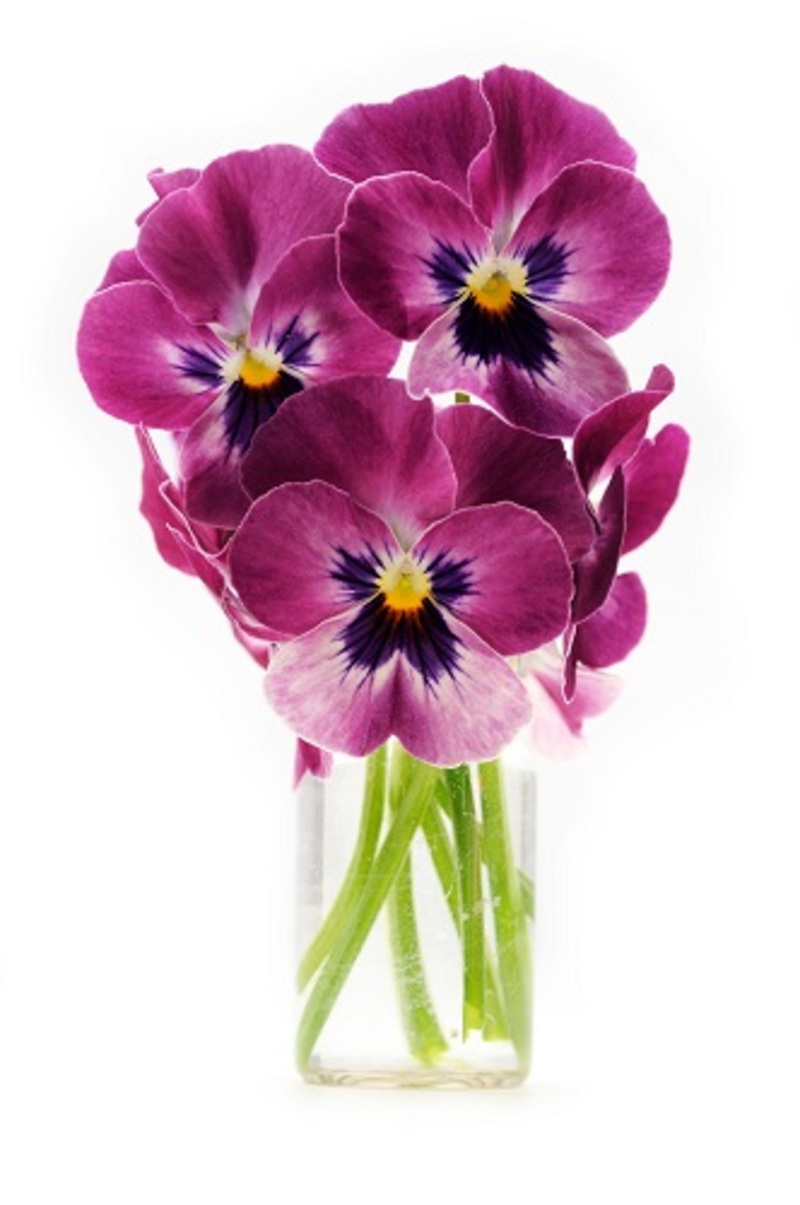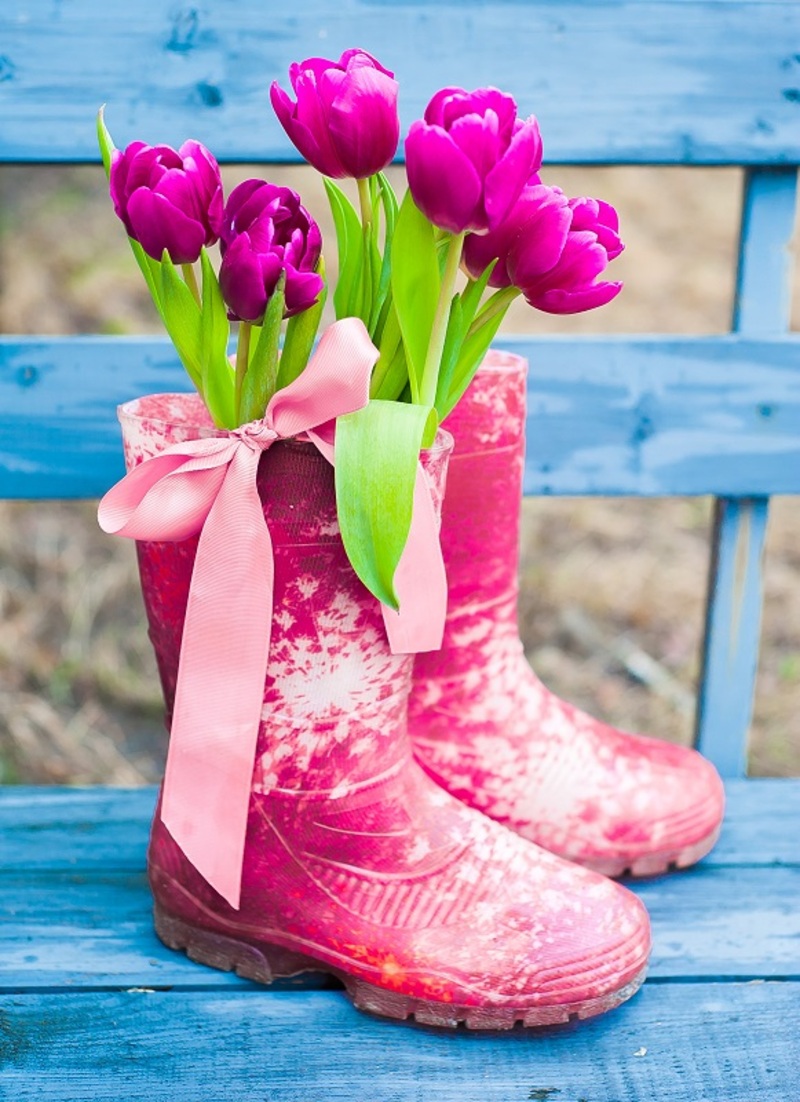8 Remarkable Facts About Sunflowers to Brighten Your Day
Posted on 26/08/2025
8 Remarkable Facts About Sunflowers to Brighten Your Day
Sunflowers--with their bright yellow petals and bold, happy faces--are more than just iconic garden beauties. These extraordinary plants have captured human fascination for centuries, showing up in art, culture, and even on your breakfast table! Whether you're a plant lover, gardener, or simply drawn to their cheerful silhouettes, delve into these remarkable sunflower facts and discover why sunflowers can truly brighten your day.
1. Sunflowers Are Native to the Americas
Did you know that sunflowers originated in North America? Long before they spread across the globe, indigenous peoples cultivated these tall, golden flowers for their edible seeds, oil, and even dye. About 4,500 years ago, Native American tribes in present-day Mexico and the United States began domesticating sunflowers, integrating them into daily life.
- Evidence of sunflower cultivation has been found in ancient archaeological sites across North America.
- Sunflowers were utilized not only for their seeds but also for medicinal purposes and textile dyes.
- European explorers introduced sunflowers to the Old World after the 16th century.
Today, the sunflower's enduring presence in fields and gardens echoes its deep-rooted American history and worldwide popularity.

2. Sunflowers Track the Sun - A Phenomenon Called Heliotropism
Have you ever noticed a field of sunflowers turning to face the sun? This mesmerizing behavior is known as heliotropism. Young sunflower buds and leaves move throughout the day, following the sun's journey from east to west. It's almost as if the sunflowers are literally soaking up every beam!
- This sun-seeking behavior is most prominent before the flowers mature.
- Once sunflowers mature and the blossoms open, they usually remain facing east.
- Studies show that east-facing sunflowers attract more pollinators and warm up faster in the morning.
Heliotropism helps young sunflowers maximize photosynthesis and grow quickly. No wonder these blooms are a symbol of positivity and sunshine!
3. Sunflowers Are a Single Flower -- Or a Thousand Flowers in One?
Here's an incredible sunflower fact: what we think of as one big flower is actually a cluster of hundreds--even thousands--of tiny flowers. This is an example of what's called a composite flower.
- The big, yellow "petals" are called ray florets.
- The center disk is packed with disk florets--each one a seed maker!
- Every disk floret has the potential to become a sunflower seed if pollinated.
This complex structure makes sunflowers some of the most efficient seed producers in the plant kingdom.
4. Sunflowers Grow to Record-Breaking Heights
When it comes to tall garden giants, no plant impresses quite like the sunflower. Some sunflower varieties can soar over twelve feet tall--taller than a single-story house!
- The tallest sunflower in history reached an astonishing 30 feet, 1 inch. It was grown by Hans-Peter Schiffer in Germany in 2014.
- Giant sunflower competitions are popular around the world, especially in the UK, USA, and Germany.
- Sunflowers are fast growers: in ideal conditions, some can grow up to 12 inches (30 cm) per day!
If you're up for a challenge, try growing sunflowers in your own garden--you might just set your own record.
5. Sunflower Seeds Are a Nutritional Powerhouse
Sunflower seeds are more than just a tasty snack; they are packed with nutrients that support a healthy lifestyle.
- Rich in healthy fats, vitamin E, and antioxidants.
- A good source of protein, fiber, and minerals like magnesium and selenium.
- May support heart health and reduce inflammation.
- Used in a variety of ways: from roasted snacks to sunflower seed butter and even as a salad topping.
Next time you enjoy a handful of sunflower seeds, know you're fueling your body with wholesome goodness!
Sunflower Oil: A Kitchen Staple
Not only are sunflower seeds great for snacking, but their oil is widely used for cooking all over the world. With its delicate flavor and high smoke point, sunflower oil is ideal for frying and sauteing.
6. Sunflowers Have a Role in Environmental Clean-Up
This fact about sunflowers might surprise you: sunflowers can help clean up toxic environments. Known as phytoremediation, this process involves using certain plants to remove contaminants from soil and water.
- Sunflowers were used to clean radioactive soil after the Chernobyl and Fukushima disasters.
- They absorb toxins such as lead, arsenic, and uranium.
- This makes sunflowers a sustainable tool for restoring polluted areas and water bodies.
Who knew your favorite cheerful flower could be a hero for the planet?
7. Sunflowers Symbolize Happiness, Loyalty, and Positivity
Sunflowers aren't just beautiful; they're loaded with symbolic meanings. Throughout history, cultures have revered sunflowers as emblems of good fortune and optimism.
- In many cultures, sunflowers symbolize adoration, loyalty, and longevity.
- Their sun-like appearance naturally associates them with joy and positive energy.
- Artists from Vincent Van Gogh to modern-day creatives have immortalized sunflowers in works celebrating vibrance and hope.
If you want to brighten someone's day or lift your own spirits, a gift of sunflowers speaks volumes!
8. Sunflowers Support Pollinators and Biodiversity
Beyond human enjoyment, sunflowers play a crucial role in supporting ecosystems and promoting biodiversity.
- Their nectar-rich florets attract bees, butterflies, and other essential pollinators.
- Birds love to feast on ripe sunflower seeds, especially goldfinches and chickadees.
- By growing sunflowers, you provide vital resources for wildlife in your garden or community.
Planting sunflowers is an easy, impactful way to support pollinators and help the planet thrive.
Sunflowers in Companion Planting
Gardeners often use sunflowers in companion planting--their tall stalks offer shade for smaller plants, attract pollinators, and serve as a natural trellis for climbing beans and cucumbers. Sunflowers truly shine in any garden!
More Fascinating Facts and Sunflower Trivia
- Genus and Species: The common sunflower is scientifically named Helianthus annuus.
- Multiple Varieties: There are more than 70 species of sunflowers, including dwarf, giant, and even red-petaled varieties.
- Seeds Per Flower: A mature sunflower head may produce up to 2,000 seeds!
- Sunflower Festivals: Across the world, sunflower festivals celebrate blooming fields every summer, attracting tourists and photographers alike.
- Global Importance: Sunflowers are grown commercially in countries like Russia, Ukraine, Argentina, and China as a vital food and oil crop.

How to Grow Your Own Sunflowers
Interested in having sunflowers light up your backyard? These sun-loving plants are surprisingly easy to cultivate, making them a favorite among gardeners of all skill levels.
- Choose a sunny spot--sunflowers require at least 6-8 hours of direct sunlight daily.
- Plant seeds after the last frost for best results.
- Space seeds apart according to variety; giants need more room to stretch out.
- Water regularly but avoid waterlogged soil. Sunflowers are drought-tolerant once established.
- Support tall varieties with stakes as they grow.
With just a bit of care, you'll be rewarded with cheerful blooms and a wealth of seeds all summer long!
Conclusion: Let Sunflowers Brighten Your Day--And Your World
From their ancient roots in the Americas to their status as global icons of joy and sustainability, sunflowers are truly one of nature's marvels. With their breathtaking heights, vital environmental roles, and symbolic meanings of happiness, loyalty, and positivity, it's easy to see why sunflowers continue to captivate people of all ages.
Whether you grow a patch in your garden or simply admire sunflower fields from afar, let these eight remarkable facts about sunflowers inspire you. The next time you spot a sunflower, remember: behind that golden face lies a world of wonder.
One Last Sunflower Fact to Leave You Smiling:
Did you know that sunflowers have even been sent into space? In 2012, astronaut Don Pettit grew sunflowers on the International Space Station--showing that even among the stars, the sunshine spirit of sunflowers knows no bounds.
Let these fascinating sunflower facts fuel your curiosity, uplift your mood, and, of course, brighten your day!
Latest Posts
8 Remarkable Facts About Sunflowers to Brighten Your Day
Send Love with Birthday Flower Delights
Simple Steps for Prolonged Poinsettia Care





